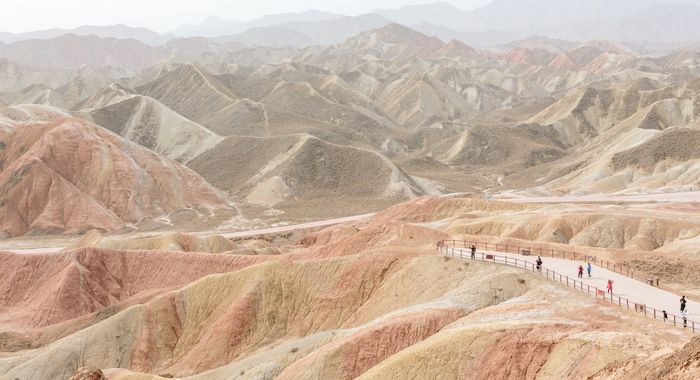Journalism // Sugar and Salt (SUITCASE Magazine Vol. 29)
I organised a trip for myself and photographer Jacob Elwood to SALT of Palmar, an eco-minded hotel in Mauritius that promises a more "local, sustainable and meaningful" experience compared to the honeymoon and family-minded luxury resorts that abound on the island. With a food focus in mind for the issue's "Taste" theme, in addition to participating in baking, cookery and mixology classes within the hotel we also headed beyond its walls to visit street food markets and small-scale producers, as well as dining with locals in their homes. The final article was published in the winter 2019 issue of SUITCASE Magazine. Read the full article here: https://suitcasemag.com/articles/mauritius-beach-sustainability
I’m on my ninth glass of flavoured rum before I realise that “sip, not shot” is probably the more polite way to tackle the row of crystal decanters lined up before me. Not that my hosts are likely to chide me for the sweet tide of wooziness now sweeping my vision – chuckling, Alain Armance fills another tumbler (“Number 10: lychee!”) and pushes it across his living-room table to be ranked. I’m working my way through he and his wife Mirella’s collection of homemade spirits, you see, and excess is no excuse for failing to sample the full output of their domestic distillery. I manage to remain sober long enough to declare cinnamon, banana and vanilla the clear victors – rosemary, however, proves an acquired taste.
If 13 shots of rum as a pre-dinner aperitif seems rather extravagant, it’s a theme that repeats throughout my time in Mauritius. The bounteous hospitality of its people combined with the Indian Ocean island’s natural fecundity means that I accidentally eat well beyond my means over and over again: hot, fluffy rotis oozing red sauce are chased by caramel-laced crêpes made of cassava; salty packets of “gram” (a chickpea and peanut mix) are washed down with gulps of condensed milk speckled with chia seeds and cubes of birthday-party jelly; and it’s impossible to decline the bags of chilli-pickled pineapple and candyfloss-coloured prawn crackers that are proffered on a seemingly hourly basis. I come to see “too full” as a mood rather than a misfortune and thank my straining waistband that my stay is limited to under a week.
Conceived as a counterpoint to the dull desert-island aesthetic of neighbouring resorts, SALT is a brash ice-cream sundae by contrast. Its peach-sorbet walls are studded with Majorelle-blue sprinkles in-keeping with the Moroccan architecture of the original building, while French designer Camille Walala has brought her signature monochrome and madness to the interiors. After a brief meditation session on the blinding beachfront, I check into her Tetris-puzzle of a lobby in shades of lilac, teal and yolk, where I download the SALT app – a nifty idea that allows you to reserve spa treatments and activities as well as chat to the team and access the hotel’s locally written guidebook, even if the room-key feature proves somewhat temperamental. The soft sound of séga music from the radio heralds my arrival in my beach-facing room, accented by the crash of waves being buffeted by a fractious wind outside my balcony.
Beneath the zingy exterior, however, it’s the hotel’s commitment to sustainability beyond just paying lip service that makes it exceptional on an island that has struggled with the concept. Single-use plastics have been ditched completely – instead I find an aluminium water bottle in my room that I refill from filter taps around the hotel, as well as a drawer full of raw sugar and freshly ground coffee, bathrobes made with organic cotton and coffee-bean waste, slippers made of rubber and sedge (a grass-like plant), and a shower full of natural products including a hair mask and salt scrub.
This attitude extends to the kitchen, where all the ingredients are locally sourced and the menu is Mauritian with modern flair. We begin our five-day feast with cold-cut octopus carpaccio, a barley and smoked-fish salad, vegan tacos with “good-seed” shells, josper-grilled corn with harissa and manchego, and a pulled pork and pineapple sandwich in a brioche bun that Jacob immediately declares “the best thing I’ve ever eaten”.
The next day I skip breakfast before SALT’s Executive Chef, Vikram Bhaugeerutty, takes us along to the local Flacq Market where some of the hotel’s produce is sourced. I step over pale coconut husks and enter a sprawling labyrinth of stalls piled high with pyramids of frilly yellow squash, tiny pineapples and bunches of mustard leaves, while clusters of gaudy gold handbags and bejewelled sandals swing overhead. Among the racks of dried fish crawling with flies, packets of bloated olives in caramel, tins of mango pickle and fat tamarind cocoons, Vikram presses further treats into my hands – sweet strips of sugar cane that I suck the juice from and discard, soft boiled chickpeas fried in spices and the street-food staple of dholl puri, a pillowy wrap made using yellow split peas.
Vikram explains that part of his role at SALT is to find local producers, or “SALTshakers” in the hotel’s parlance, to supply the kitchen. We stop by the family garden of Sweti, who shows us her neat braids of organic capsicum, guava, papaya, curry leaf and begonia flowers, as well as the passionfruit growing along the wall and mahogany-brown vanilla pods weeping sticky tears in the greenhouse. Nearby, Vikram’s uncle, Soobiraj, is a policeman by trade but also grows young palm-heart trees in his front garden, which he then painstakingly transports to the mountains so they can flourish (and be used in the hotel’s cuisine). SALT’s partnership with Island Bio, a non-profit that establishes community gardens staffed by ex-offenders, recovered drug addicts and those in need of a second chance, provides another supply avenue, and plans are underway to establish the hotel’s own farm.
On our final morning I rise early and watch the filament of raging surf flickering along the horizon like a tantrum as the sun warms the clouds to the colour of almond blossom. After a stint in the salt chamber at the spa, in which I crunch the grains underfoot and breathe in the briny air, we hire some fat bikes and heave our way along the coast to the fishing village of Trou d’Eau Douce.
We pass yapping dogs and colourful shacks that look like torn-off train carriages selling fruit and snacks, and sail past the low, pinkish bristles of pineapple fields and thick sugar-cane roots until we reach an abandoned sugar mill. The only sound aside from the rustling grass is the snore of a sleeping security guard in one of the windows. With the morning’s salt still lingering on my skin and the sweet scent of sugar cane in my lungs, I exhale into the silence and savour my last moments on this sensory isle.

